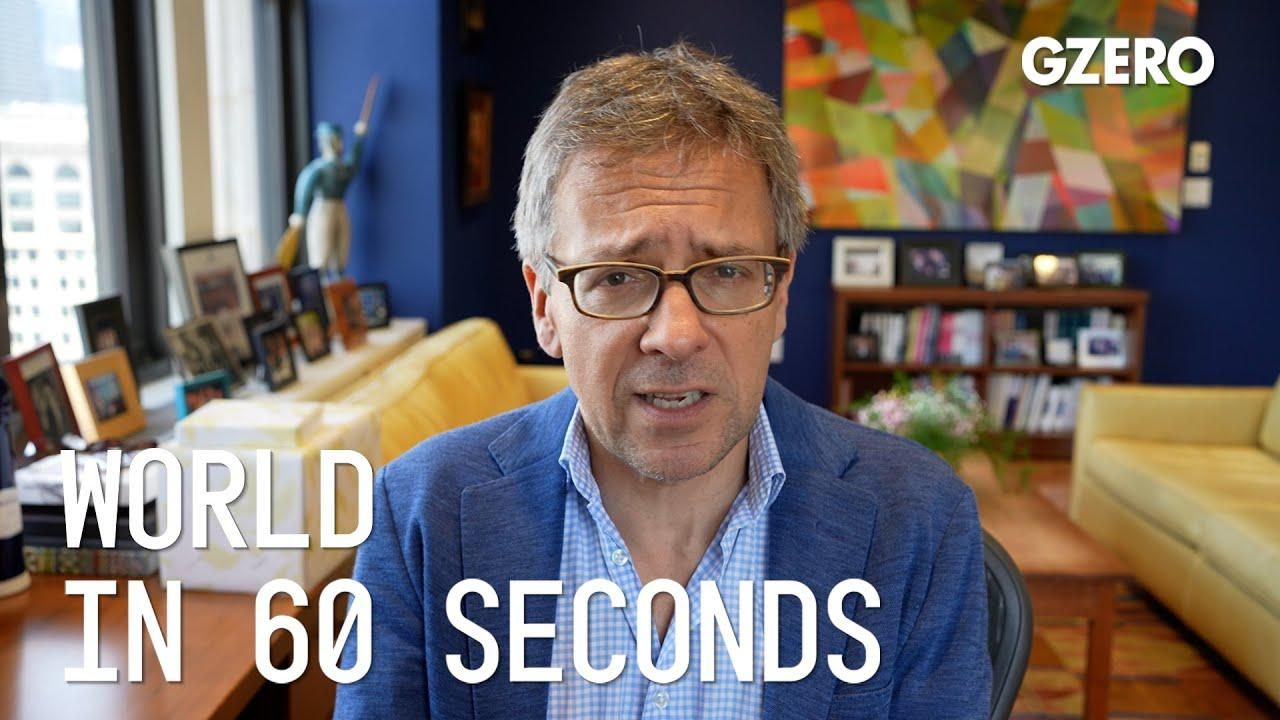Ian Bremmer shares his insights on global politics this week on World In :60.
What does Biden hope to come from his trip to Saudi Arabia?
Well, first he hopes he isn't smashed by progressives in his own party after saying when he campaigned that he wanted to make Saudi Arabia into a pariah internationally. Traveling to Saudi Arabia and visiting with Mohammed bin Salman doesn't do that, but of course, $120 plus oil doesn't do that either. Look, I think it's sensible for him to go. I'm glad he's actually making the trip. In particular, he wants to see the Saudis increasing their oil production beyond present announced quotas to reduce the price. It's impacting Americans at the pump with record levels right now. He'd love to see Russia thrown out of OPEC Plus. I think that's plausible and beyond that, the possibility that Saudi Arabia and Israel would formally open diplomatic relations, an extension of the Abraham Accords which was one of the biggest accomplishments in foreign policy of the Trump administration. Biden's completely aligned with that and I think he's going to try to push on that. So, I do think there will be some direct takeaways from this trip that'll be positive for the Biden administration.
Is the bear market in the United States a prelude to a recession?
Certainly a lot of people think that. I've heard it directly from Larry Summers, I've heard it from Kristalina Georgieva at the IMF. I mean, I would say that a majority of economists out there believe that the United States is heading into a recession. Keep in mind that recessions of the United States come along fairly frequently. So it's not like it's that dramatic as long as it's narrow and it doesn't last very long, but still the mood has turned decidely negative, the level of inflation, the willingness of the Fed to go farther in raising rates and of course the impact on Biden's approval ratings, all of that in firmly fair market territory right now.
Will China's return to mass testing help combat China's COVID problem?
It certainly helps. They need a much greater level of surveillance, but the fact is you now have variants that are vastly more transmissible, infectious. They're closer to measles and that means that unless you are vaccinating everybody, and especially the older and those that are vulnerable from a health perspective, you can't prevent this disease from expanding wildly. What you have to do is make sure the people that get it, don't get really sick. I mean, we just had one bar in Beijing with 50 positive cases in one evening that clearly came from one person that showed up with COVID. That is an environment that doesn't lend itself to zero-COVID. It lends itself to, we have to live with the disease but we have to make sure we're vaccinating people, we have to make sure that we have adequate therapeutic responses. The Chinese are not where they need to be on either of those things. The disease has changed. China's response has not and that means zero-COVID is going to be with them for longer. The economic impact will last longer too.
- More oil? MBS & the moral dilemma ›
- Podcast: Inflation nation: How Larry Summers predicted ... ›
- The Graphic Truth: 50 years of US inflation vs interest rates - GZERO ... ›
- The Graphic Truth: Zero-COVID is hurting China's economy ›
- Biden's trip to Saudi Arabia is about more than pumping oil - GZERO Media ›
- Biden's Saudi Arabia visit is more about strategic partnership than oil - GZERO Media ›
- OPEC+ cutting oil production - GZERO Media ›
More For You
In this Quick Take, Ian Bremmer addresses the killing of Alex Pretti at a protest in Minneapolis, calling it “a tipping point” in America’s increasingly volatile politics.
Most Popular
Who decides the boundaries for artificial intelligence, and how do governments ensure public trust? Speaking at the 2026 World Economic Forum in Davos, Arancha González Laya, Dean of the Paris School of International Affairs and former Foreign Minister of Spain, emphasized the importance of clear regulations to maintain trust in technology.
Will AI change the balance of power in the world? At the 2026 World Economic Forum in Davos, Ian Bremmer addresses how artificial intelligence could redefine global politics, human behavior, and societal stability.
Ian Bremmer sits down with Finland’s President Alexander Stubb and the IMF’s Kristalina Georgieva on the sidelines of the World Economic Forum to discuss President Trump’s Greenland threats, the state of the global economy, and the future of the transatlantic relationship.
